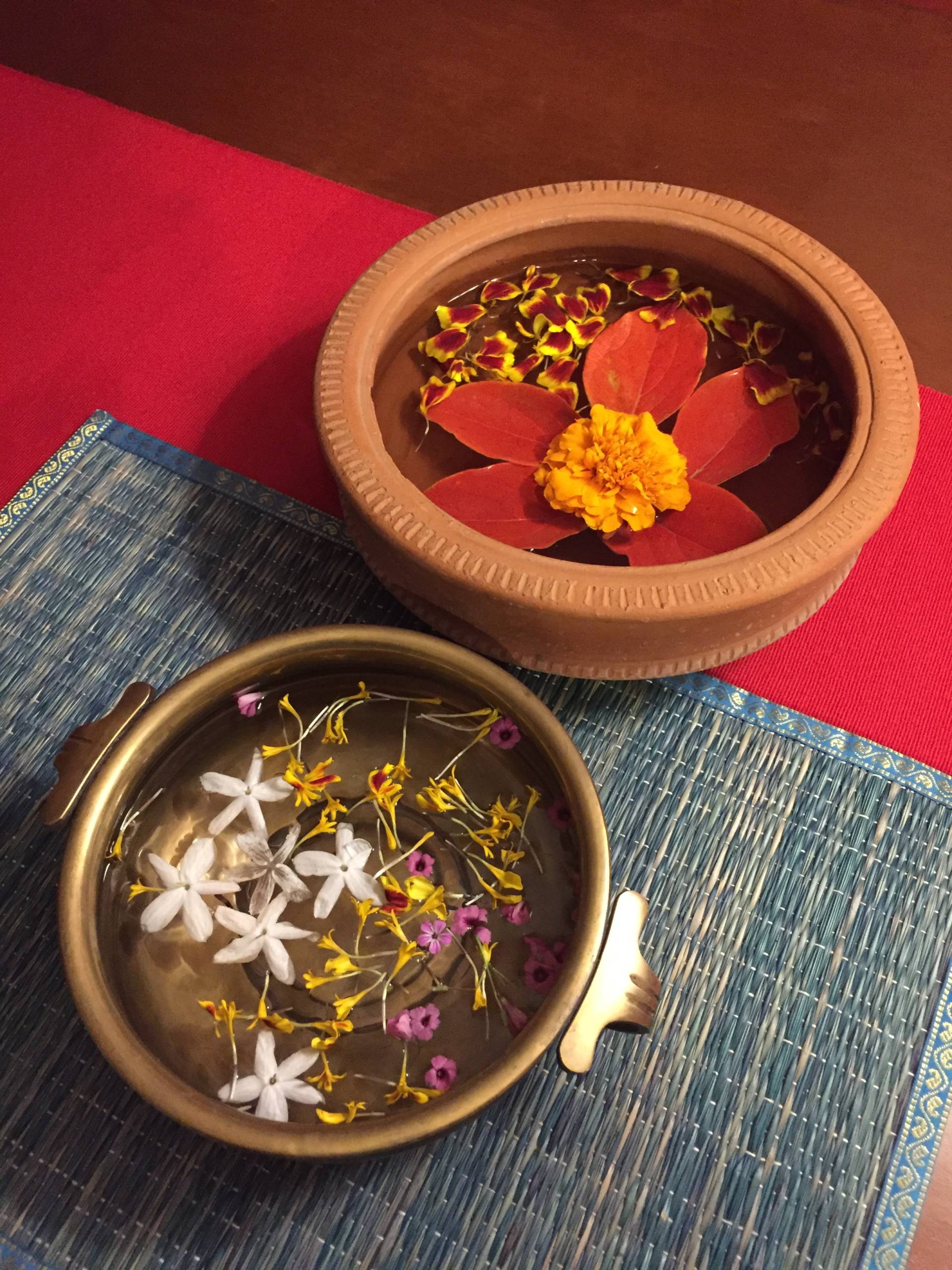This week marks the five day festival of Diwali with Sunday, the third day, being the most brightly celebrated of them all. Diwali, often described as the festival of lights, holds an array of origin stories and customs amongst the different religions and regions that observe it across India, Nepal, Sri Lanka and beyond.
How the Bay Area’s South Asian Diaspora Explores Diwali’s Multiplicity

“In India, it’s much more diverse regionally. It is a festival that Hindus, Sikhs, Jains celebrate but differently,” explained Barnali Ghosh, a landscape architect by trade and activist who co-leads South Asian Radical History Walking Tour in Berkeley.
Ghosh, who is originally from West Bengal, grew up in a Hindu household in the south Indian cosmopolitan Bangalore, or Bengaluru. “[One] of the beautiful things about the apartment building we lived in, which was like a hundred apartments, was for every festival people would send their regional specialties to the other person's house,” she remembers fondly. “You're always waiting like ‘What are we going to get for Diwali?’ Because Diwali, as a Bengali family, was not the most important festival for us.”
For Reetu Mody, a lawyer and community organizer who grew up in Concord, Diwali was one of a series of autumnal fêtes kicked off by Navratri, another festival celebrated in a multitude of ways. “I think because of the loss of translation and [because] my mom is Jain and my dad is Hindu, I just knew it more as a celebration around joy, and lights and happiness,” she shares with me. “Only as an adult have I gotten to know the Hindu story around Diwali and that actually led me to critique it a lot more.”
Mody’s critique is taking shape as a Diwali event she’s organizing along with Sonya Mehta, a fellow community organizer and Parivar, a trans and gender-non-conforming centered South Asian social collective. On November 2nd in Oakland, the group will throw a feast that includes food, dancing and learning to elaborate on and examine the festival’s complicated history.
“Diwali in some ways can be very contentious because it has a strong history in caste suppression in Hinduism and also in very patriarchal oppression,” Mody explains. “We wanted to throw a party that captured people's sense of celebration during this time period but that wasn't unthoughtful or uncritical of those traditions that Diwali comes from and how we might want to create new ones.”
Diwali, its contentious history and its bountiful diversity, play out prominently in food so Mody and the rest of the planning team are carefully considering what their feast might signal to those interested in attending. “Not having meat is something that can be linked with caste oppression so we're having a discussion around it,” Mody tells me.
The topic of vegetarian versus non-vegetarian food around Diwali and other similar holidays that cross regional and religious lines in India is a debate beyond what’s on the plate. “That’s become very political in India right now,” Ghosh tells me.
In the last four years, under Prime Minister Narendra Modi, Human Rights Watch estimates that at least 44 people have been killed in India by cow protection groups who are often associated with Hindu fundamentalist views. The victims, many of whom were Muslim, were accused of storing or selling cattle for consumption.
“Not all Hindus are vegetarian,” Ghosh explains, “But it’s become this really twisted thing where regional differences are getting sort of wiped out because of the dominance of Hindu fundamentalists, [or] Hindutva culture, which wants to project only one version of Hinduism.”

Like other Bengalis, Ghosh grew up celebrating Kali Puja, a festival which falls on the same day as Diwali. “It feels even more important to preserve the Bengali identity, which is that we eat meat during this festival. It is part of our culture,” she tells me. “It wouldn’t be Kali Puja without goat meat.”
As for Mody, she describes the food her family cooked at home as “Gujrati food done Rajisthani style”. It’s a description that renders “Indian food” ineffective in its lack of specificity. For Diwali specifically, Mody remembers eating foods that were considered to bring good fortune. “We had mung beans and they're considered very lucky. You put dried ones in your suitcase. You eat them during celebrations.” she reminisces. “We would have things like puris, small fried flatbreads and we'd have that with mango rus which is this, like, mango milk you eat as a dessert.”
Sugar might in fact be the unifier across Diwali celebrations. “Celebrating with dessert is probably a thread that ties everything together,” Ghosh says, “If your neighbor was sending you something, it’d be something savory and fried, and sweets.”
In the diaspora, the tensions borne in homelands can be dulled and imbued with the influence of the politics of their new environments. As Diwali gains popularity as a holiday outside of India, Ghosh and Mody are invested in both examining the holiday’s complexities and keeping the abounding traditions that can get flattened through its mainstreaming.
For her upcoming Diwali feast, Mody is hoping for the right mix of education and celebration through a considered feast: “In the most obvious way, in a way that feels true to all cultures and communities, food is central to how we come together.”